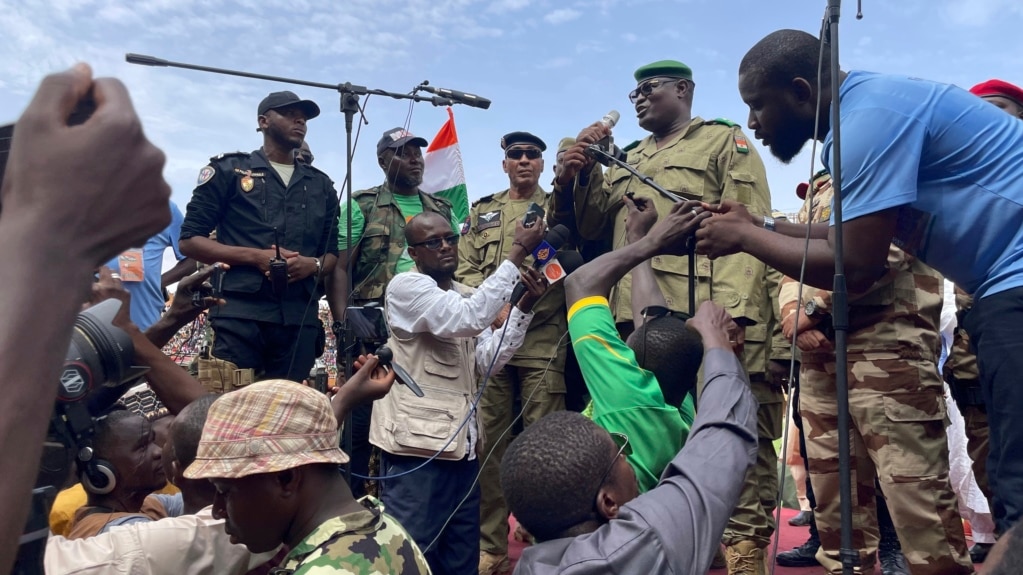Niger’s military rulers have rejected the latest diplomatic attempt to return to power the country’s ousted president.
The coup leaders refused to meet with a delegation of West African, African Union and United Nations representatives. In a letter Tuesday, the new rulers said a “climate of threatened aggression” made it impossible to hold talks on ending the constitutional crisis in Niger.
The crisis began on July 26, when members of the presidential guard seized control of the government. They detained and continue to hold the democratically-elected leader of Niger, President Mohamed Bazoum and his family.
The West African political and economic organization, ECOWAS, threatened military intervention in Niger unless Bazoum was returned to power by August 6. ECOWAS stands for Economic Community of West African States.
Earlier, a top U.S diplomatic official visited Niger to urge the military rulers to restore the democratically elected Bazoum to power.
U.S. Undersecretary of State for Political Affairs Victoria Nuland said she traveled to the capital Niamey “to express grave concern at the undemocratic attempts to seize power and urged a return to constitutional order.” She made the comment on the social media site X, formerly Twitter.
Nuland told reporters in a conference call Monday that she met with Niger’s self-appointed ruler Brigadier General Moussa Salaou Barmou and three other military officials during her visit. She described the talks as “extremely frank and at times, quite difficult.”
She said the military officials are “quite firm” on how they plan to move forward and those plans do not “comport with the constitution of Niger.” She said the officials refused her request to meet directly with ousted President Bazoum and his family, as well as coup leader General Abdourahamane Tchiani.
ECOWAS leaders are preparing for a meeting Thursday to discuss their situation with Niger’s ruling military.
Niger is the world's seventh-biggest producer of uranium. Uranium is the most widely used fuel for nuclear energy, adding to its importance.
"There's no doubt that diplomacy is the best way to resolve this situation," American Secretary of State Antony Blinken told French radio station RFI.
He said the United States was backing ECOWAS efforts to bring order. He declined to comment on the future of about 1,100 U.S. troops in Niger. French, German and Italian troops are also present in the country.
Blinken later told the BBC he was worried that Russia's Wagner mercenaries were using the instability in Niger to strengthen their presence in the Sahel.
ECOWAS has ordered sanctions on Niger and Western allies have suspended aid.
Residents of Niamey who spoke to Reuters were strongly supportive of the overthrow.
I’m Dan Novak.

